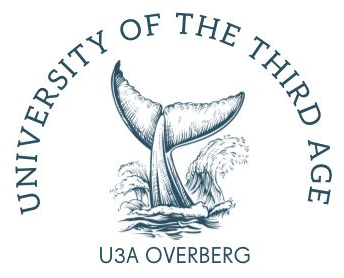Early in the 1900s two of the three Luyt brothers, Henry and Alewyn, left the Cape to work in t gold mines in the Transvaal.
In 1913, Alewyn (1887-1977) was involved in an explosion underground, and as a result lost his sight completely. After hospitalisation in the Transvaal, he spent two years at the School for the Blind in Worcester in the Cape Province, where he was trained in the use of a small hand-knitting machine, which produced men’s socks.
The eldest of the three Luyt brothers, Pieter Johannes (or P John Luyt, as he preferred to be called) owned the Marine Hotel and later, the Riviera Hotel and was an influential person in Hermanus.
Their mother, Joey, urged P John to find places for his brothers in Hermanus that were less dangerous than the mines. So, P John trained Henry in the basics of hotel management and for many years he managed the Riviera Hotel on behalf of the Luyt family. He later went on to manage two other hotels in Hermanus.
In her memoirs Joey Luyt describes the situation regarding Alewyn in these words:
It was about March 1916 that Alewyn, John’s youngest brother, came to stay with us…He brought a knitting machine with him, and sat for hours each day on the stoep of the cottage [adjacent to the Marine Hotel], his fingers unerringly manipulating the delicate mechanism.
He had an attractive personality – friendly, cheerful, always full of jokes and good humour, and he never complained.
Olive Vera Crews (1899-1948), who had been born in a small town in the Northern Cape, came to Hermanus as governess to the children of the Luyt family. It appears Olive first attracted Alewyn by her piano playing. The Luyt family changed her job and employed her to assist Alewyn in his day-to-day living:
Alewyn and Olive Crews were thrown together a good deal, and in a short time were in love. Olive had a very sympathetic and generous nature; she was courageous too to consider marrying a blind man with very little means of support.
The couple were married in 1916 and had two children, Edith (1917-1998) and Arthur (1924-2013; see box).
Alewyn’s business expanded. It outgrew the cottage in which he and Olive first lived, and a house was built on the other side of Main Road, opposite the hotel, to accommodate the family and the business. (The house still exists at no 185 Main Road, immediately adjacent to the small commercial centre, which houses a restaurant and a travel agent. At present the property belongs once again to the Marine Hotel and there are several structures on it. I will investigate these in due course.)
Alewyn and Olive added a large room to their house, connected to the family dwelling by a single door and used exclusively for the business.
The business traded as Luyt’s Knitting Industry, and at its most active employed up to 10 full-time female workers. Alewyn actually imported industrial knitting machines from the UK, such was the scale of the business. Sales were made to local customers and to visitors during holidays.
There was also a profitable mail-order business, sending products all over Southern Africa and to several other countries.
Luyt’s Knitting Industry was especially busy during World War II when demand from the military went up sharply. Thousands of allied soldiers would have worn gloves made by the “blind knitter of Hermanus”, as Alewyn Luyt was often called.
Everyone who has referred to Alewyn Luyt comments on his capacity to keep a cheerful attitude to life, despite the cruel accident he had endured. He seemed to have always been positive, and to enter into the spirit of things.
Olive died at an early age, in 1948, but Alwyn carried on the business. In the late 1960s, Alewyn closed his business and left Hermanus to live with his daughter Edith’s family in Pinelands.
He died in 1977 at the age of 90, having been blind for 64 years. His great-grandson Robert Halkett recalls him as very active even at an advanced age, walking for 15 minutes each way to the local shops and listening to many radio programmes.
